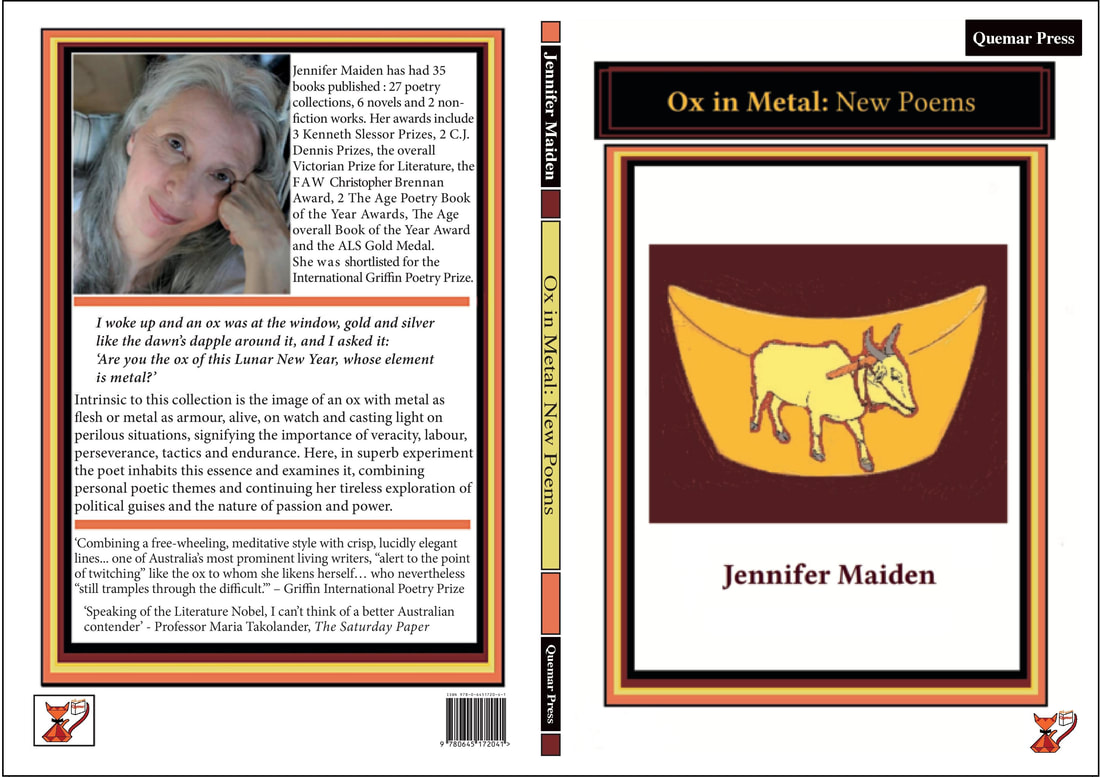 It’s as if there’s a dream-universe in which the characters continue to develop like a series—they meet and talk, referencing previous situations and combining those with what is happening in the real public and political spectrum. The effect is both stimulating and unsettling, as the characters are both representative and self-contained.
It’s as if there’s a dream-universe in which the characters continue to develop like a series—they meet and talk, referencing previous situations and combining those with what is happening in the real public and political spectrum. The effect is both stimulating and unsettling, as the characters are both representative and self-contained.
Category: Book Reviews
Book Reviews
A review of Pretend I Don’t Exist by Morgan Bell
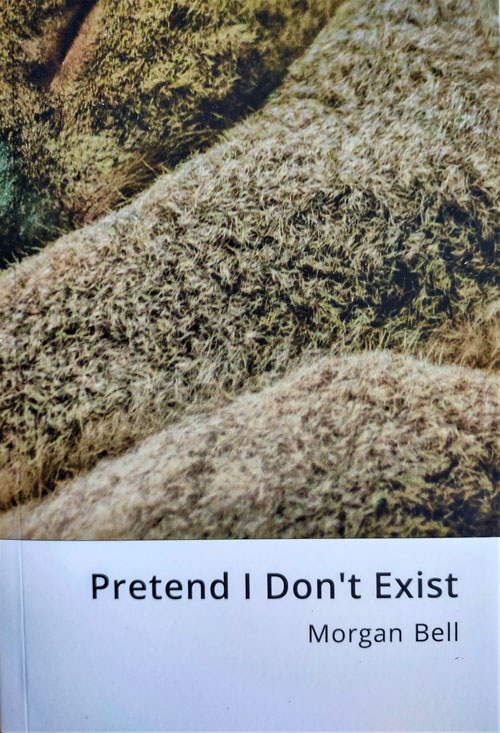 Pretend I Don’t Exist is a delight to read – the kind of book a parent can have a lot of fun reading to a child (or vice versa) but also one that tells a serious and important story about the beauty of animal sentience, the rich interplay of the human and the natural, animate world, and perhaps most importantly, the precariousness of the latter, particularly when it comes to koalas who are increasingly vulnerability, facing a significant and rapidly increasing loss of habitat.
Pretend I Don’t Exist is a delight to read – the kind of book a parent can have a lot of fun reading to a child (or vice versa) but also one that tells a serious and important story about the beauty of animal sentience, the rich interplay of the human and the natural, animate world, and perhaps most importantly, the precariousness of the latter, particularly when it comes to koalas who are increasingly vulnerability, facing a significant and rapidly increasing loss of habitat.
A review of Off Limits by Louise Wakeling
 Wakeling writes lines methodically, in a measured way, never letting her words race ahead of her intended message, whether she is writing about underground stormwater pipes, a power station or the underbelly of a secret Sydney. The poet filters ordinary experiences and places through vibrant images and poignant words.The poet brings to the front paradigms of life and the world, sometimes her observations are like theorems others like syllogisms and others like a work of art.
Wakeling writes lines methodically, in a measured way, never letting her words race ahead of her intended message, whether she is writing about underground stormwater pipes, a power station or the underbelly of a secret Sydney. The poet filters ordinary experiences and places through vibrant images and poignant words.The poet brings to the front paradigms of life and the world, sometimes her observations are like theorems others like syllogisms and others like a work of art.
A review of Count Four: Poems by Keith Kopka
 These speakers, Kopka’s tellers – their attitudes – interest me more than anything else. They seem to hurt, as if they live as emotionally bruised, successful failures whose memories of fathers and mothers, family, course the past coming in on the writer’s desire to tell all – and more – to live to play music so close to grieving, I want to wince then sigh for the horrific plight joy brings alive on the planet.
These speakers, Kopka’s tellers – their attitudes – interest me more than anything else. They seem to hurt, as if they live as emotionally bruised, successful failures whose memories of fathers and mothers, family, course the past coming in on the writer’s desire to tell all – and more – to live to play music so close to grieving, I want to wince then sigh for the horrific plight joy brings alive on the planet.
A review of Greedy Cow by Fiona Sinclair
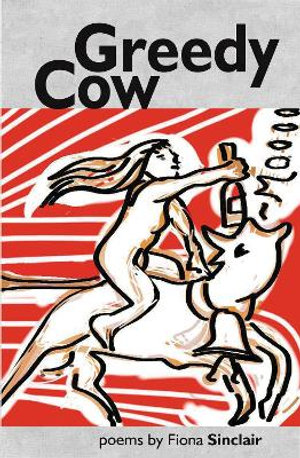 The collection opens with Sinclair’s humorous experiences with internet dating, from the pervy responses to her profile picture to flirting with emoticons; “over the week I virtual two time / men from Rochester and Deal.” Soon enough, though, she begins a relationship with a man – “our steps synchronize like Fred and Ginger” – and over time they adjust to one another.
The collection opens with Sinclair’s humorous experiences with internet dating, from the pervy responses to her profile picture to flirting with emoticons; “over the week I virtual two time / men from Rochester and Deal.” Soon enough, though, she begins a relationship with a man – “our steps synchronize like Fred and Ginger” – and over time they adjust to one another.
A review of Shaky Town by Lou Mathews
 In Shaky Town, Mathews expertly shows us how things work and why they break down, taking apart and putting back together a range of small, yet fully felt lives. His overlapping worlds are mapped in prose that shimmers like hammered copper. He knows this territory well: you don’t doubt that when a certain bug shrinks the leaves of a eugenia hedge, more of a morose neighbor’s sad guitar music will bleed through.
In Shaky Town, Mathews expertly shows us how things work and why they break down, taking apart and putting back together a range of small, yet fully felt lives. His overlapping worlds are mapped in prose that shimmers like hammered copper. He knows this territory well: you don’t doubt that when a certain bug shrinks the leaves of a eugenia hedge, more of a morose neighbor’s sad guitar music will bleed through.
A review of A Critical Inquiry: Text, Context and Perspectives by Sutanuka Ghosh Roy
 The section Indian English Poetry is quite daring in its inclusion of all modern age poets like, Adil Jussawalla, Sanjeev Sethi, Meena Kandasamy and Vihang A. Naik. Mostly, she looks for a hint of a world other than the real, mundane workaday world in the creations of these poets.
The section Indian English Poetry is quite daring in its inclusion of all modern age poets like, Adil Jussawalla, Sanjeev Sethi, Meena Kandasamy and Vihang A. Naik. Mostly, she looks for a hint of a world other than the real, mundane workaday world in the creations of these poets.
A review of Baltimore Sons by Dean Bartoli Smith
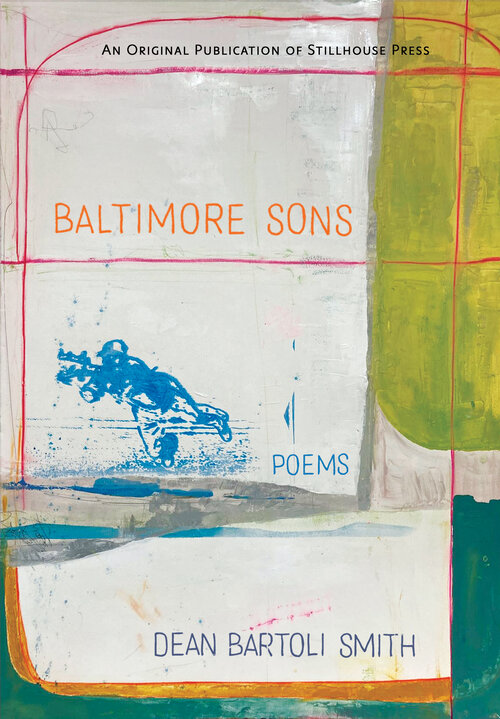 For Baltimore has faded from its glory days, whenever those were. Some might say it was the nineteenth century, when Francis Scott Key and Edgar Allan Poe roamed the streets and major political parties held their nominating conventions in Baltimore. Smith’s nostalgia is for the sports heyday of the 1960’s when Unitas and the Colts ruled football and the Orioles were always in contention, and the NBA Bullets hadn’t yet left town for Washington.
For Baltimore has faded from its glory days, whenever those were. Some might say it was the nineteenth century, when Francis Scott Key and Edgar Allan Poe roamed the streets and major political parties held their nominating conventions in Baltimore. Smith’s nostalgia is for the sports heyday of the 1960’s when Unitas and the Colts ruled football and the Orioles were always in contention, and the NBA Bullets hadn’t yet left town for Washington.
Paltry Arguments Lead to Ugly Consequences:A review of The Proud & the Dumb by Bob Freville
 To sum it all up, The Proud and the Dumb is a fast-paced and funny political horror story that plays well with genre tropes while presenting its “monsters” with a opportunity for redemption. It is part dark comedy and part battle cry for reform. This short but sweet tale shines a light on the issues facing society today in a wholly entertaining yet less than fleshed out way. It seems to offer a brilliant but kind of stilted suggestion for how we might change course.
To sum it all up, The Proud and the Dumb is a fast-paced and funny political horror story that plays well with genre tropes while presenting its “monsters” with a opportunity for redemption. It is part dark comedy and part battle cry for reform. This short but sweet tale shines a light on the issues facing society today in a wholly entertaining yet less than fleshed out way. It seems to offer a brilliant but kind of stilted suggestion for how we might change course.
A review of Love Letter To Who Owns The Heavens by Corey Van Landingham
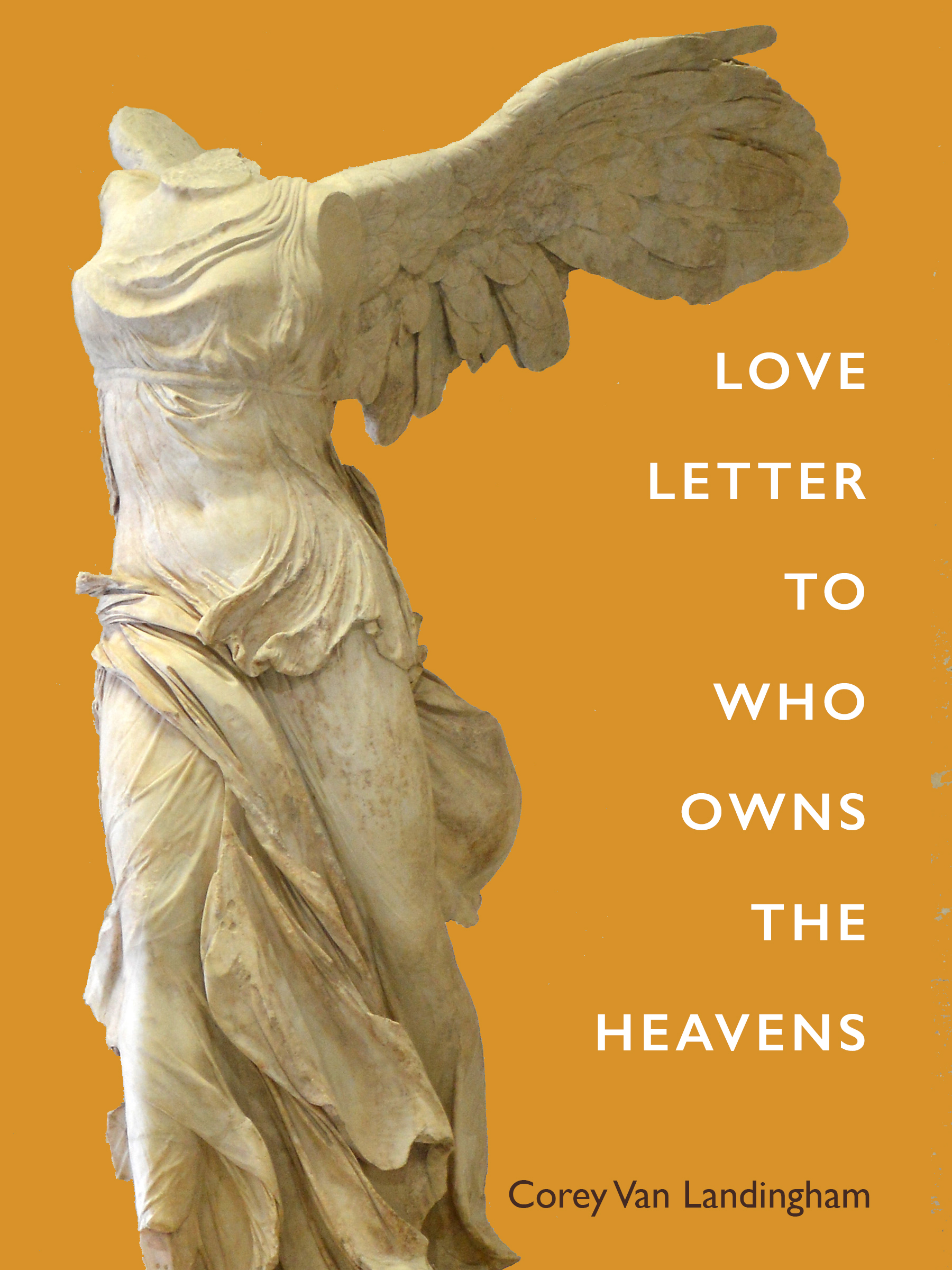 Van Landingham, fortunately, is in no danger of taking herself too seriously. The first page greets us with the dismembered hand of a statue thrusting its lone, attached finger to the heavens. The poems that serve as prologue and epilogue are separated from the first section of the book not by numerals or titles but with that image, which does its job and detaches us from any mood set by the lyrics. This image appears five times.
Van Landingham, fortunately, is in no danger of taking herself too seriously. The first page greets us with the dismembered hand of a statue thrusting its lone, attached finger to the heavens. The poems that serve as prologue and epilogue are separated from the first section of the book not by numerals or titles but with that image, which does its job and detaches us from any mood set by the lyrics. This image appears five times.